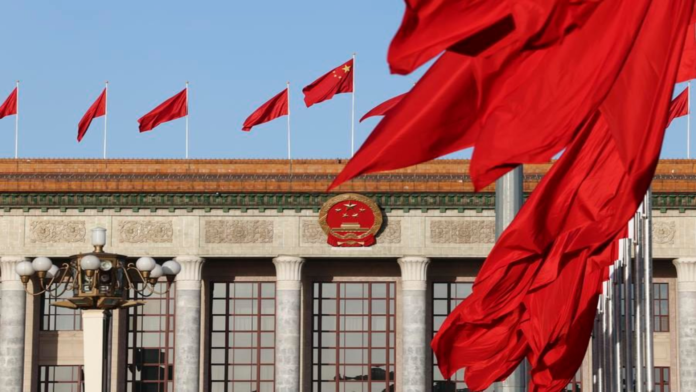Amid territorial disputes in the South China Sea (SCS), China stands to lose more if it imposes economic sanctions on the Philippines, a political analyst said Saturday.
University of the Philippines Institute for Maritime Affairs and Law of the Sea director Jay Batongbacal said China would be in trouble if it engages in a trade war with the Philippines.
It is actually Beijing that benefits more from its trade ties with Manila, Batongbacal asserted at the Saturday News Forum in Quezon City, considering that most of the consumers of its manufactured products are Filipinos.
“Madali po ‘yun sabihin pero tingnan natin kung ano ang pruweba ‘no. Totoo ba na kumbaga kung ititigil ng China ang trade niya sa atin eh babagsak ang ekonomiya? (That’s easy to say, but let’s see what the proof is. Is it true that our economy will collapse if China stops trading with us?)” Batongbacal said.
“Wala pa tayong nakikitang pruweba na kaya ng China na talagang i-sanction tayo economically (We have not yet seen any proof that China can actually sanction us economically).”
He recalled that China suffered grave repercussions when it imposed in the past trade restrictions on Australian goods.
In 2020, China blocked imports of Australian commodities, like coal, timber and barley, after Australia called for an inquiry into the origins of Covid-19.
Batongbacal said the United States and Japan, serving as the Philippines’ largest trading partners, “can easily fill in the trade gap with China.”
Jollan Margaret Llaneza, foreign trade service officer at the Department of Trade and Industry, noted that the Philippines maintains a free trade agreement with China under the context of the Association of Southeast Asian Nations-China Free Trade Agreement and the Regional Comprehensive Economic Partnership.
She said the Philippines also benefits from the trade agreements because of lower tariff rates and a more liberalized market access for Filipino exporters.
No major armed conflict
Meanwhile, Batongbacal discounted the possibility of a major armed conflict between the Philippines and China, stressing that both countries have existing crisis management mechanisms that they must consider.
“Hindi naman ganoon kabilis magkaroon din ng giyera. Hindi naman ito parang laro lang ng mga bata na komo mayroong nangyari, may napitik ka eh giyera patani na iyong dalawang pamilya (It’s not that fast to have a war. It’s not like it’s just a child’s game, like when something happens, there will be a war between two families),” Batongbacal said.
De La Salle University professor Renato de Castro said both countries should take into account the “law of unintended consequences” before considering waging a war.
De Castro added that they should learn from the lessons of the two-year Russia-Ukraine armed conflict, stressing that “it’s easy to start a war but it’s difficult to end it.”
“Once you start a war, you simply don’t know what will happen,” he said. (PNA)
Photo credit: Facebook/ChinaEmbassyManila/


